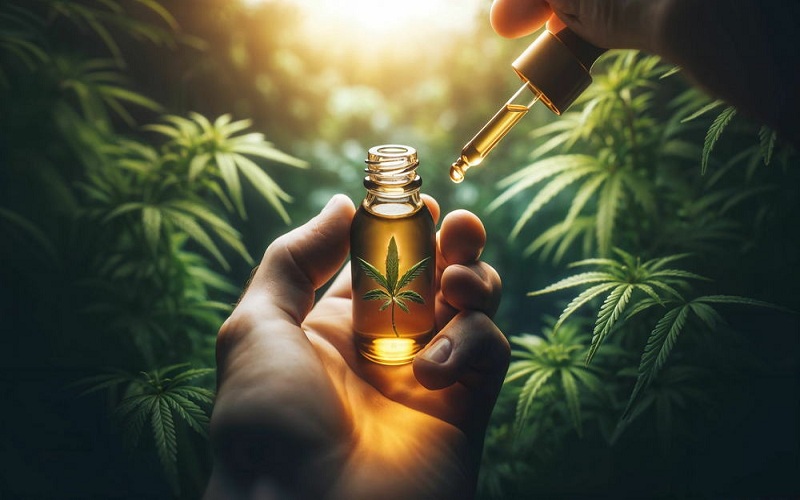
Hand holding CBD hemp oil droplet against marijuana buds - alternative medicine, cannabis oil
Patients brand new to medical cannabis find plenty to be confused about. Something as basic as the differences between THC and CBD can be lost on someone who doesn’t know the score. Both have therapeutic benefits, but they are distinctly different substances recommended for different reasons.
The starting point for understanding the differences between THC and CBD is knowing that they are both cannabinoids. Cannabinoids are naturally occurring substances found in cannabis plants. When introduced into the human body, these substances interact with the endocannabinoid system in a variety of ways.
With that basic understanding, we can move on to the differences between THC and CBD. There are three worth noting:
1. From Where They Are Sourced
Both THC and CBD are sourced from cannabis plants. What must be understood is that cannabis is a single plant with multiple varieties. CBD is sourced primarily from the variety known as hemp. Whether it is industrial hemp or hemp grown specifically for its CBD content, nearly all CBD on the market is sourced from such plants.
Meanwhile, THC is sourced from the variety we know as marijuana. What is the difference between hemp and marijuana? We will get to that in the third section of this post dealing with legality. Just know that within the marijuana variety there are numerous strains.
Growers have developed strains with the goal of maximizing certain cannabinoids and terpenes. There are both low and high-potency strains, based on THC volumes. A low-potency strain would have less THC and vice versa.
2. Their Psychoactive Properties
Although both CBD and THC offer therapeutic benefits, they have different effects on the brain. Simply put, CBD does not have psychoactive properties. THC does. This can make a difference from a medical standpoint.
According to the operators of the Beehive Farmacy medical cannabis pharmacy in Brigham City, Utah, chronic pain is the most often cited condition for which medical cannabis is recommended. Chronic pain sufferers are after THC. CBD does not seem to do much for pain relief.
Conversely, there are some medical conditions that respond well to CBD but not THC. Medical cannabis patients looking for relief from such conditions not only do not need the psychoactive effects THC provides, but they might also not want to experience those effects anyway.
3. Their Legal Status
The last major difference between CBD and THC is the legal status of both substances. Before getting to that, let us define the difference between hemp and marijuana. The dividing line is THC volume.
A cannabis plant with 0.3% or less THC, by volume, is legally classified as hemp. Plants with more than 0.3% THC are legally classified as marijuana. What appears to be a completely arbitrary distinction was necessary in order for the federal government to legalize hemp. That is exactly what they did with the 2018 Farm Bill.
As a result of that bill, both hemp and CBD are legal nationwide. All hemp-derived products are also legal. This includes CBD oil, hemp extracts, and so forth. Meanwhile, marijuana and THC remain illegal under federal law.
As you probably know, dozens of states have given approval to marijuana and THC. But to be clear, they have not legalized the substances. They have only decriminalized them. Despite the language used by marijuana advocates, state law does not supersede federal law.
From a medical standpoint, the differences between CBD and THC are significant enough for patients to take the time to understand them. Both offer therapeutic benefits. Both have their distinct applications. Patients should know and understand them to get maximum benefit from their medications.





